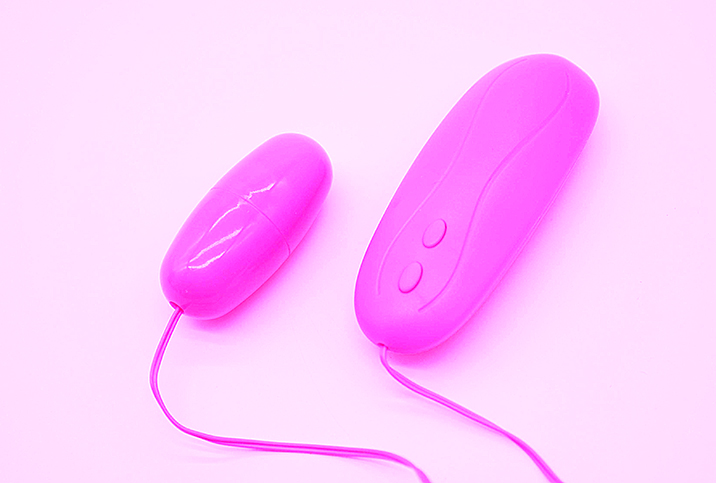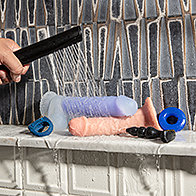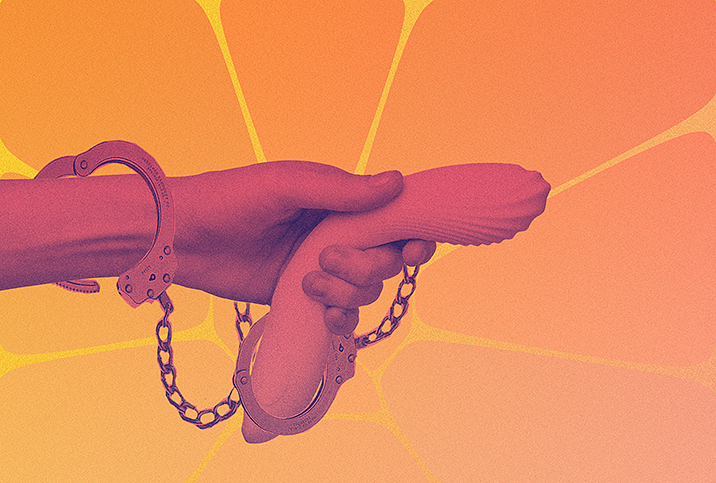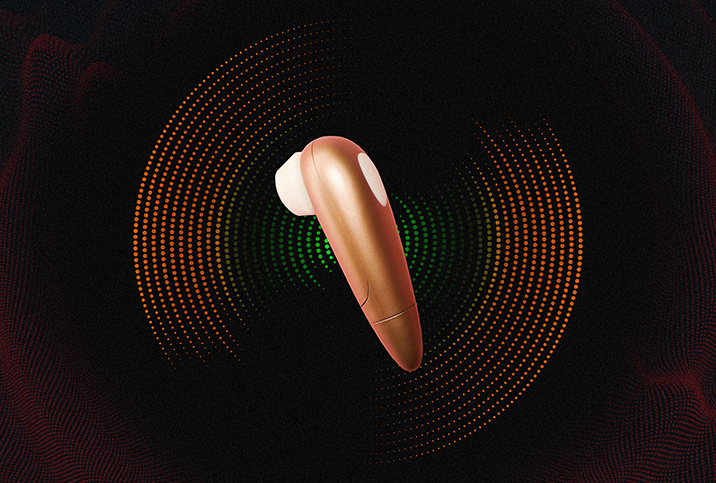The Pandemic Sex Toy Craze Signals Cravings for Intimacy in Dire Times

Toilet paper. Canned food. Bikes. Board games. Sex toys. Our buying trends at the height of the pandemic signaled a lot about our anxiety and need for connection.
In some places, sex toy sales increased substantially, such as a 30 percent increase in North America reported by one online outlet, but in other areas such as Ireland, they skyrocketed to a 177 percent increase, stated a study published in 2021 in the Journal of Psychosexual Health.
So far, researchers speculate the increase was due to panic buying based on perceived scarcity, anticipation of price hikes and the need to gain control of the surroundings during the uncertainty of the pandemic. However, they also considered more personal reasons, such as being separated from partners and using the extra time to explore sexuality.
Seeking lower anxiety and higher intimacy in a devastating time
Whether people were separated from their partner, locked in together or single, it's logical to infer sex toys added a little spice to lockdown.
Sonia Wright, M.D., a Minneapolis-based sex coach at the Body Agency, explained the jump in purchases occurred for a variety of reasons.
"One, for reducing anxiety, for helping with sleep, with self-soothing…basically it allows us to have a form of pleasure, masturbation, these things that are definitely important," she said. "It also can lead to a dopamine hit, which gives us this pleasure that we need in this time where we are really stressed out, but there's also a release of oxytocin."
She explained oxytocin is sometimes called the "love" or "connection" hormone, and this magical neurotransmitter allows us to more fully connect with ourselves or our partner during orgasm, including with a sex toy.
Sex toys' role in avoiding the virus and changing sex lives
Wright said it made sense that the study showed a strong correlation between countries with stricter and more widespread lockdown mandates and increased sex toy purchases. Countries with higher sales included Denmark, New Zealand and the United Kingdom, among others.
"If there's less going out into the community and connecting with people, you're isolated, you're home, you're going to want to think of ways to pleasure yourself and ways to get the sexual intimacy that you're craving," she said.
Some couples used the extra time at home to intentionally explore their sex lives together in a new way, according to sex coach Krista Haapala, from Portland, Maine. She explained this brought to light discrepancies in desire and preferences, and new opportunities for shared exploration with sex toys and fantasy. She noticed more couples seeking sex therapy after renewing their attention to their sex lives during the pandemic.
Additionally, Wright said single people might have determined it was safer to find sexual pleasure alone than to risk sex with someone else.
"Some enjoyed the dating reprieve and focused on self-pleasuring as a source of joy," Haapala said, noting that the pandemic allowed couples to explore intimacy more often during the day than just when they fell in bed exhausted at night, leading to more flexibility in the timing of their sexual pleasure. She hopes the shift in habits and creativity continues.
Overcoming stigmas and threatened partners
The sex toy craze has been a long time coming. Wright said these tools long carried a stigma, which precluded some curious couples from trying them.
"I do love, love, love the idea and celebrate that the stigma associated with sex toys is decreasing over time," she said.
Wright sees sex toys as an option that will outlast sexual concerns from partners with erectile dysfunction (ED), vaginal atrophy, menopause and body changes into our 70s, 80s, 90s and 100s.
As we age, it becomes more difficult to have "standard penetrative sex," she said, so getting to know our bodies through sex toys and having control of our own orgasms is essential.
"Some can feel threatened by the ever-hard, any-size experience of a dildo or the bodies-don't-do-that sensation of a vibrator," Wright said. "For those who feel possessive of their partner's pleasure experiences, the scarcity feelings of jealousy will degrade feelings of trust and intimacy, creating a relationship environment of secrecy and competition."
Wright concluded, "I think it's time for women to take responsibility for their sexuality and add toys in to get what they need…which will enhance and make essential intimacy with their partner better."




















